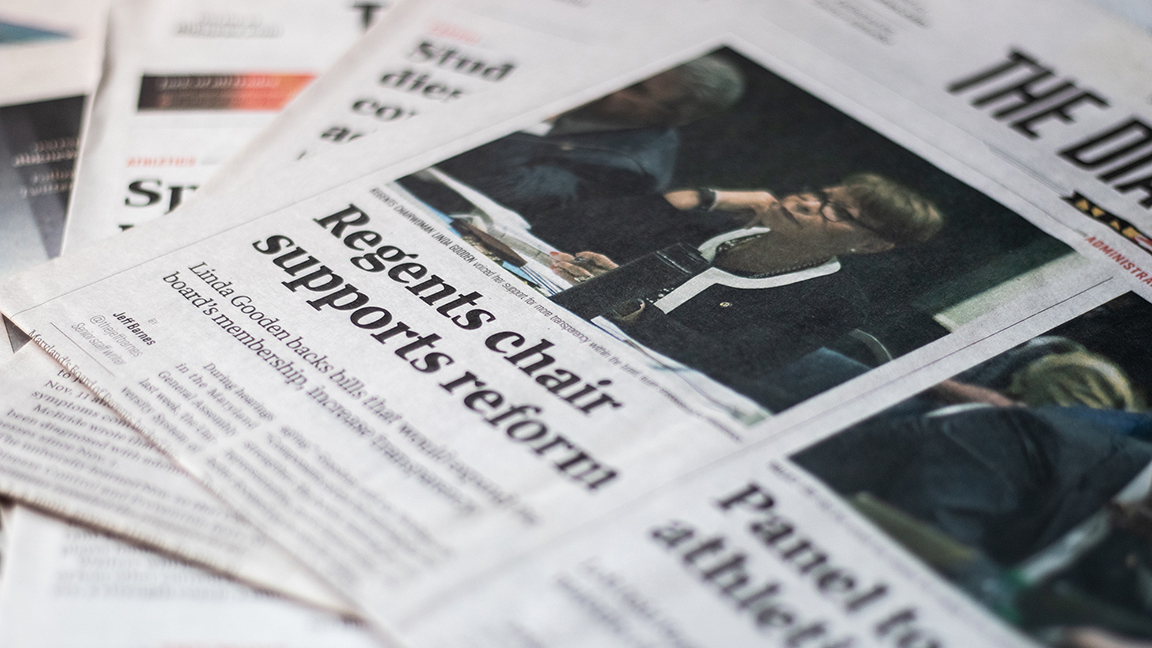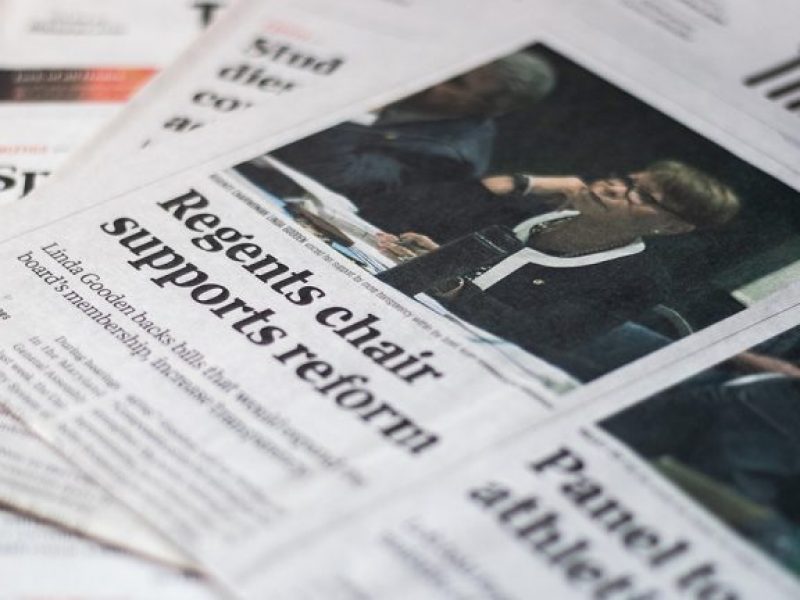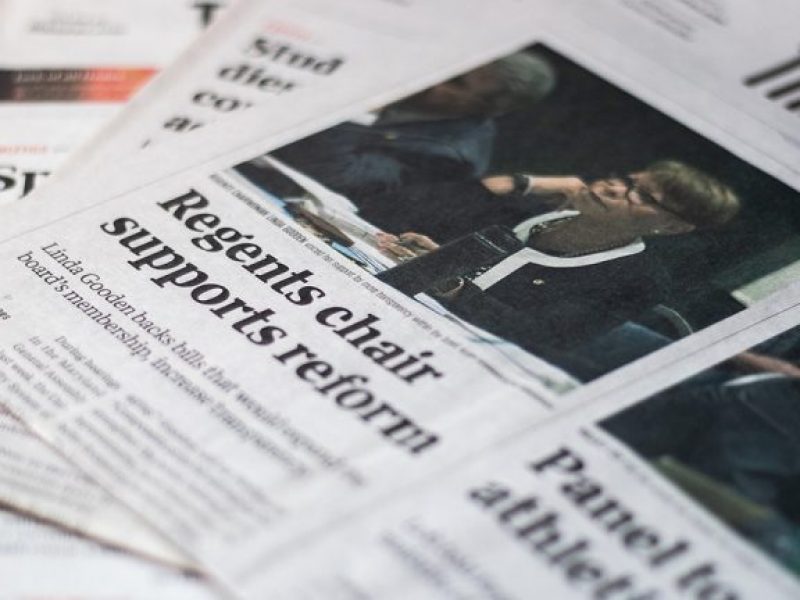The Diamondback has a history of making mistakes when it comes to representing the University of Maryland community. There have been glaring gaps in our coverage where we decided not to — or failed to even consider — covering stories about and important to underrepresented communities. And when we have covered these stories, we’ve tiptoed around the underlying issues at play — whether it’s race, ethnicity, gender, sexuality, religion, class and other intersections — or focused only on the challenges, ignoring the ways people find joy, shelter and community.
There have been many errors, but every one points to the same truth: The Diamondback has failed to represent the entirety of the University of Maryland’s community, time and time again.
The reality is that our identities affect everything from the stories we pitch to the people we interview to the edits we make. The Diamondback’s newsroom is overwhelmingly white, cisgender, non-disabled, neurotypical and straight, and it shows in our work. Although we’ve long considered making The Diamondback more inclusive one of our goals, we have never taken concrete steps to make it a priority.
But this summer, spurred by conversations about covering protests and navigating the concept of journalistic objectivity, we took some first steps to better serve our community.
To start, we formed the Equity Committee, a group of paid Diamondback staffers dedicated to analyzing, critiquing and improving our internal culture and composition, our coverage and our community engagement. In this committee, we have been actively discussing topics we have avoided in the past. It can be uncomfortable to talk about our personal failings, but educating ourselves about our mistakes has pushed us to make some improvements.
The committee will also be holding a forum at 2 p.m. on Dec. 6 to gather input from students and community members about how The Diamondback can better represent you, your views and the stories that need to be told. The form to RSVP is here.
Along with working to connect more directly with our readers, we’ve also been explicitly talking with each other and other staff writers about how we can cover stories we failed to write in the past. Since July, we’ve written about Brandon’s journey to this university as a Dreamer. We’ve told the stories of unapologetically Black members of the Maryland women’s soccer team, as well as those of proud Afro-Latino students. We’ve explored the university initiative designed to confront its history with slavery, the connotations of abbreviating Prince George’s County name and the lasting wounds felt in Lakeland, a historically Black College Park neighborhood.
We’ve also created two new story beats dedicated to continuing these efforts. On our news desk, reporters Amanda Hernández and Victoria Ebner are taking on the justice, equity and identity beat, and on our sports desk, reporter and sports editor David Suggs is leading the identity in sports beat.
Because much of the university community is made up of people whose first language is Spanish, we started DBK En Español, where we translate breaking news stories and features, including stories related to the union that represents this university’s workers. We aim to expand this section over time to include a broader range of stories.
We’re also updating the guidelines we use to help staffers learn how to write and edit stories by adding sections about inclusive language, reducing unconscious bias and sourcing a wide variety of perspectives. By the spring semester, reporters Anaya Truss-Williams and Clara Longo de Freitas will have finished a new guide about culturally sensitive interviewing and covering issues regarding marginalized and intersectional identities. We will also have an updated editing guide, created by copy chiefs Sahana Jayaraman and Gabby Lewis, that will further standardize how we fact-check stories, ensuring our sourcing and language appropriately reflects the wide-ranging experiences of our community.
Diversifying our staff is crucial to diversifying our coverage. Though we connected with a variety of student groups and organizations to recruit staff from different backgrounds this semester, we’re still a long way off from being representative of the university community. The Equity Committee is working on a demographics survey of the staff, which will be published on our site by the end of the calendar year and will hold us accountable for making concrete changes to our newsroom makeup.
These efforts are just the first step in a long road to addressing The Diamondback’s shortcomings in representing the community. Still, the committee’s work, and the work of these individual people, is not enough. The simple fact is that a student publication built by predominantly white, cisgender, non-disabled, straight, neurotypical people cannot sufficiently serve the more diverse, varied population of College Park and the university without a complete dissection and rebuilding of The Diamondback’s culture. That is what the Equity Committee is working to do.
And we want to continue these conversations with our readers. This committee and its efforts are very much a work in progress, and listening to our audience is an essential step in learning how we can best serve our community.
To RSVP for The Diamondback’s community forum at 2 p.m. on Dec. 6, please fill out this form. We look forward to hearing from you.


